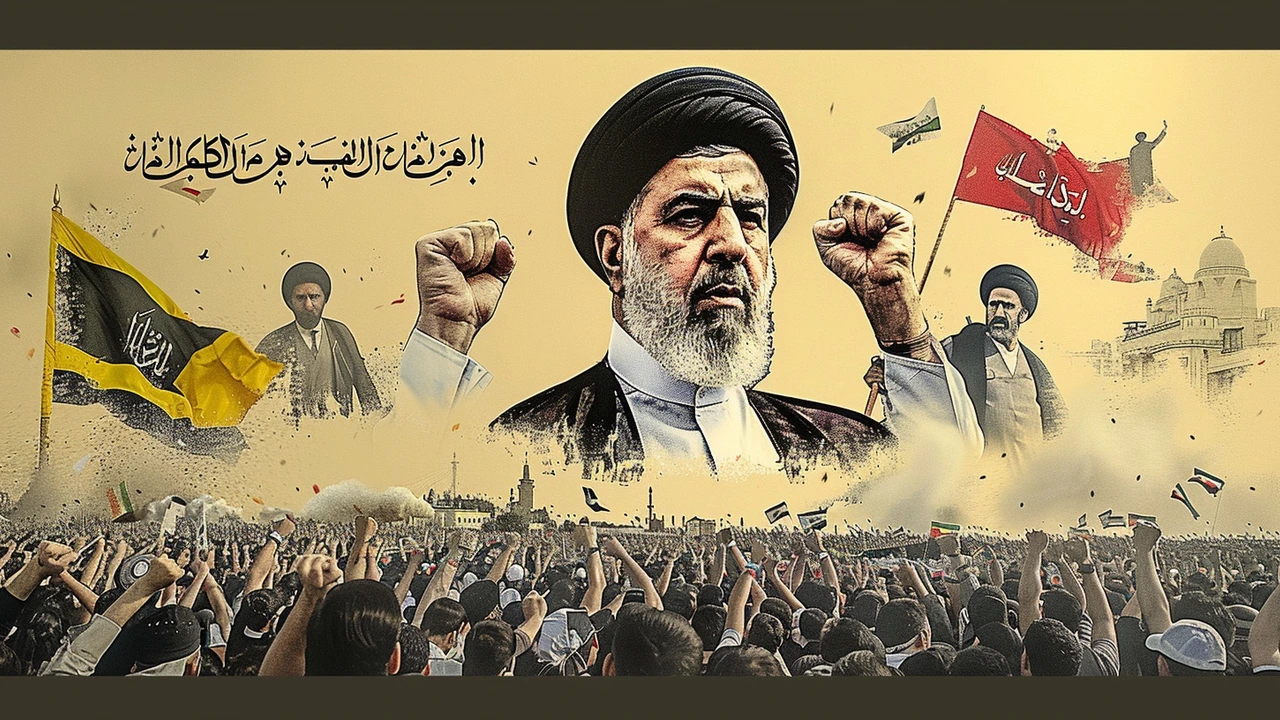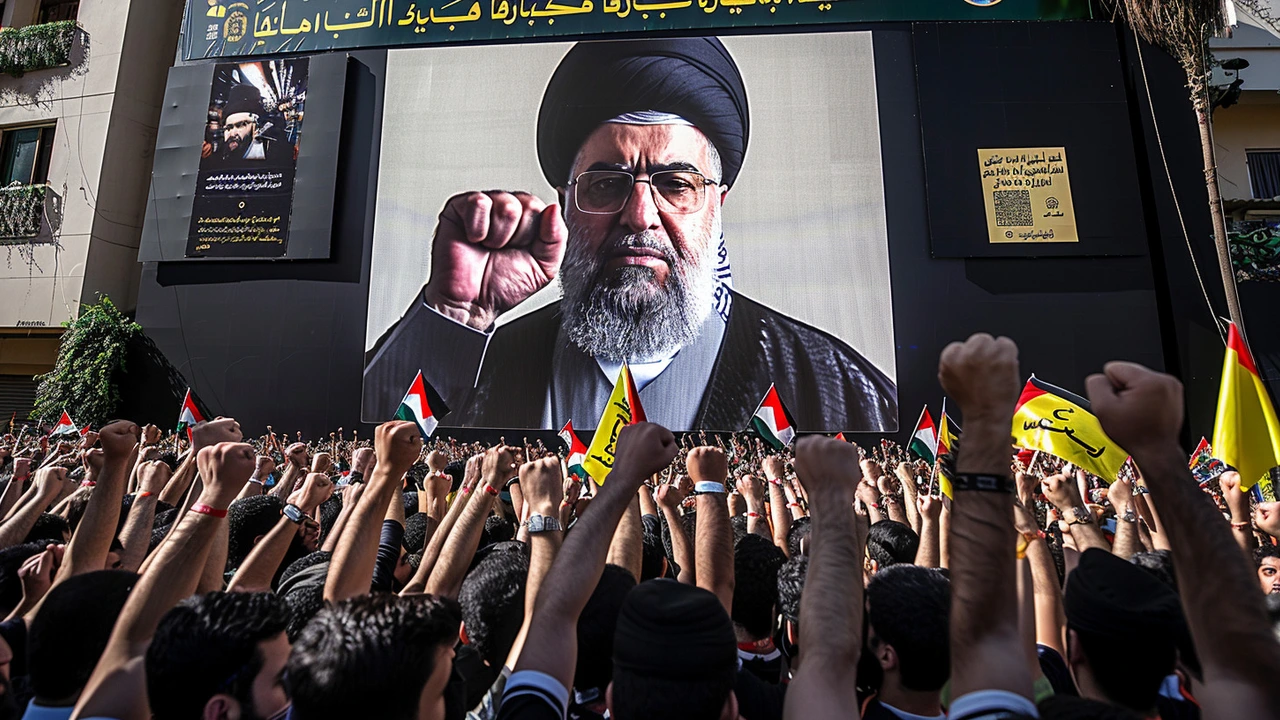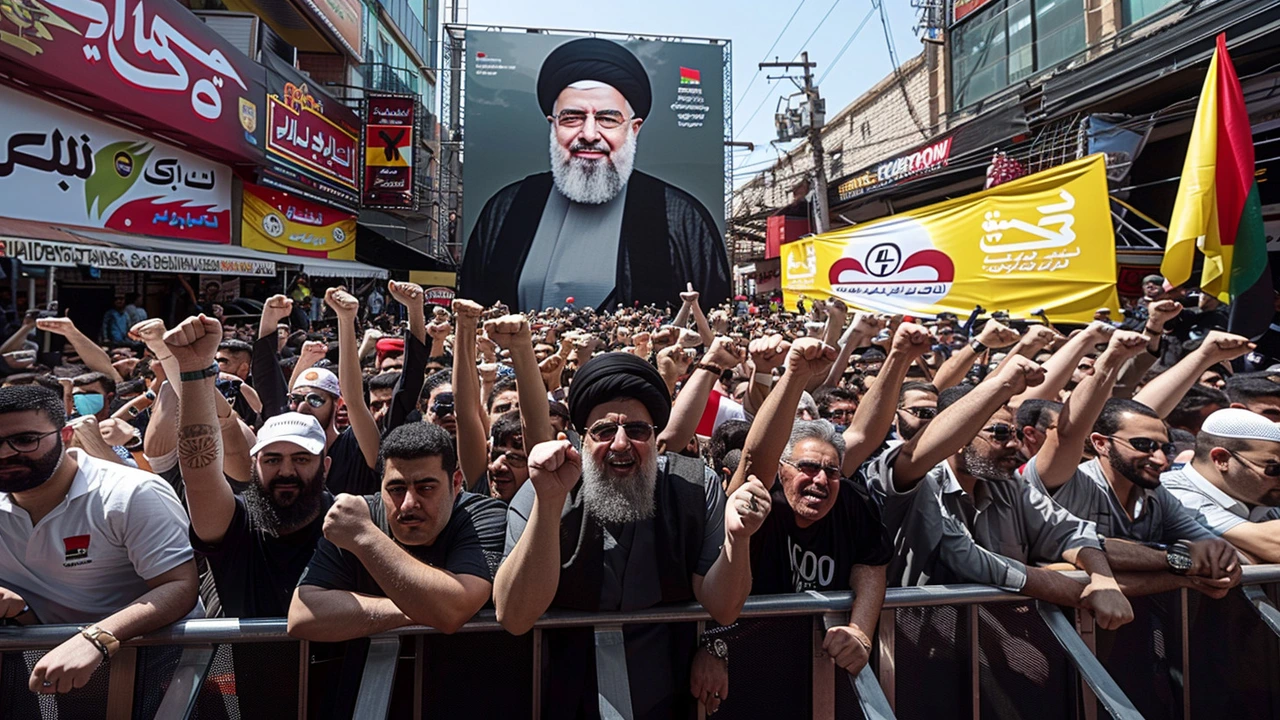Warning for Cyprus Amid Rising Israel-Hezbollah Tensions in Lebanon

In World News
Tensions in the Eastern Mediterranean
In the increasingly volatile atmosphere of the Eastern Mediterranean, the already strained relations between Israel and Hezbollah have spilled over into a broader regional context. The latest development sees Hezbollah's chief, Hassan Nasrallah, explicitly warning Cyprus of potential repercussions if it allows Israel to use its infrastructure for military purposes. This stern warning underscores the precarious nature of international alliances and the delicate balance of power in the region.
Cyprus's Strategic Importance
Cyprus, a small island nation, finds itself caught in the crosshairs of this escalating conflict due to its strategic location and historical ties with regional powers. Historically, Cyprus has permitted Israeli air drills over its airspace, a practice that has not only facilitated military preparedness but also strengthened bilateral ties. However, Nasrallah's latest remarks have brought the issue into sharp focus, suggesting that Cyprus's continued cooperation with Israel could be interpreted as an act of war by Hezbollah.
Even though these drills have been strictly non-combat in nature, the distinction becomes blurred during times of active conflict. Hezbollah, a militant group with significant influence in Lebanon, has made it clear that any use of Cypriot bases or airspace by Israel during ongoing hostilities would be met with severe retaliation. This places Cyprus in a highly precarious position as it navigates the choppy waters of regional politics.
Nikos Christodoulides's Stance
In response to these threats, Cypriot President Nikos Christodoulides has been quick to reaffirm his country's commitment to neutrality. Speaking to both domestic and international audiences, Christodoulides emphasized that Cyprus does not wish to be embroiled in the conflict. The president's remarks are designed to placate both Hezbollah and the Cypriot populace, who are understandably apprehensive about the prospect of their nation being dragged into a regional war.
Despite these assurances, the question remains as to how long Cyprus can maintain this stance if the situation continues to deteriorate. The island nation is uniquely situated within the Eastern Mediterranean, bordered by volatile regions that could quickly become flashpoints in a larger conflict. Balancing its strategic partnerships with a firm commitment to neutrality will be a challenging task for the Cypriot leadership.

The European Union's Position
As a member of the European Union, Cyprus's security concerns resonate beyond its immediate borders. The EU has been vocal in its support, declaring that any attack on one member state is tantamount to an attack on the entire union. This collective defense doctrine is designed to deter aggressors, but its effectiveness in the current climate remains uncertain. While the EU's condemnation of Hezbollah's threats is significant, the union's ability to influence events on the ground may be limited.
Moreover, the involvement of other external actors, such as the United Kingdom, adds another layer of complexity to the situation. British military bases in Cyprus have reportedly been used in various capacities, including to launch attacks against the Houthis in Yemen and potentially to support Israeli operations. This historical context creates a murky backdrop against which current events are unfolding, complicating Cyprus's bid to remain neutral.
Hezbollah's Reluctance to Escalate
Despite the bellicose rhetoric, there are indications that Hezbollah is not eager to escalate the conflict further. Nasrallah himself has expressed a desire to avoid a broader war but has also vowed to retaliate against any Israeli provocations. This dual approach suggests that while Hezbollah is prepared to defend its interests vigorously, it is also aware of the catastrophic consequences that a full-scale war could entail.
The fine line being walked by all parties involved highlights the delicate balance that must be maintained to prevent a slide into widespread violence. With each side wary of triggering an uncontrollable escalation, the situation remains tense yet controlled. However, the unpredictability of military engagements means that miscalculations or impulsive actions could easily tip the scales toward open conflict.

The Role of International Diplomacy
Amidst these heightened tensions, the role of international diplomacy cannot be overstated. Diplomatic channels between Cyprus, Israel, Lebanon, and broader international stakeholders are crucial in managing the crisis. Efforts to de-escalate through dialogue and negotiation are ongoing, with various actors calling for restraint and measured responses.
The international community is keenly watching the situation, with several countries offering to mediate and facilitate talks. By maintaining open lines of communication, there is hope that a peaceful resolution can be achieved. Yet, the success of these diplomatic efforts hinges on the willingness of all parties to engage in constructive discussions and make concessions where necessary.
Conclusion: A Precarious Balancing Act
In summary, the warning issued by Hezbollah to Cyprus serves as a stark reminder of the interconnected nature of regional conflicts. As Israel and Hezbollah continue to exchange fire at the Lebanese border, the risk of a broader conflict involving multiple nations looms large. Cyprus, in its bid to remain neutral, finds itself navigating a complex landscape of alliances, threats, and international relations.
The future of this tense standoff remains uncertain, contingent on the actions of the key players involved. Whether through diplomatic resolution or continued military posturing, the coming days and weeks are likely to be critical in determining the trajectory of the conflict. For Cyprus, the challenge lies in steering a course that safeguards its security while avoiding entanglement in a potentially devastating war.
Write a comment